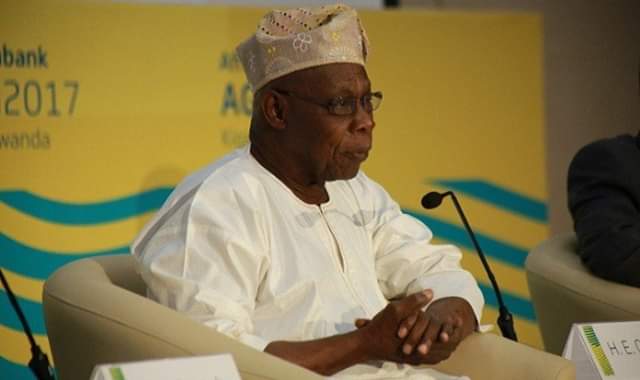
In 2002, the administration of ex-President Olusegun Obasanjo signed an agreement ceding $100 million to the family of Sani Abacha in exchange for the return of $1 billion ill-gotten wealth traced to the late military dictator.
The deal, Obasanjo said at the time, was the “hardest decision” he had to make in his life.
That money, held in trust by Abubakar Bagudu, governor of Kebbi state, is what the federal government now wants to return him.
His company, Blue Companies, handled the investment portfolios linked to the Abachas.
With interest, the money has grown to $110 million since 2002 when the agreement was signed.
However, the US has been kicking against paying the money to Bagudu but the Buhari administration went ahead to sign a 2018 agreement with the governor to return the money to him, as reported by TheCable.
Abacha, who served as Nigeria’s head of state from 1993 to 1998, was said to have looted up to $5 billion during his regime.
Efforts to recover the funds had hit the rocks until Obasanjo signed a contract to allow the family of the late leader to have $100 million in return of the money stashed across Swiss banks.
“That (the contract) is one of the hardest decisions I have to make in my life,” Obasanjo was quoted as telling TELL Magazine.
“I know that the Abacha family hadn’t legitimately done any work to deserve US$ 100 million.”
Obasanjo was further quoted to have said he signed the deal because what Abacha’s lawyer wanted was for the case to linger “endlessly and they can do that almost forever.”
“Our lawyers came and said: Well you have a choice to make. We got to a situation where we can get about US$ 1.2 billion,” he had reportedly said.
“But should I go ahead to recover US$ 1.2 billion of Nigeria’s money or go to tell Nigerians that we are fighting this case and 25, 30 years from now you wouldn’t get anything.
“So I told the lawyer ‘let me think about it because it wasn’t an easy decision for me.”
Obasanjo, however, agreed the deal was a good one, when compared to similar cases across the world.
Just like the case of Bagudu, the deal also shielded the Abacha family from further litigation particularly those relating to the amount Nigeria was seeking to recover.











